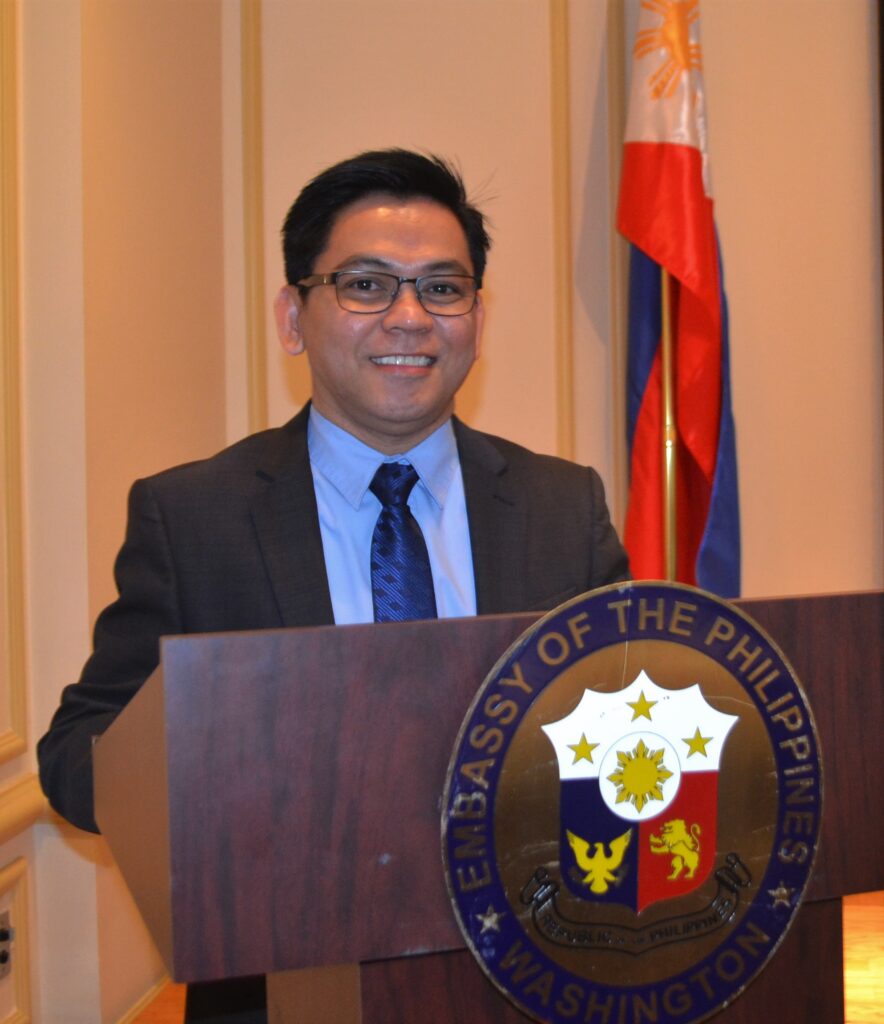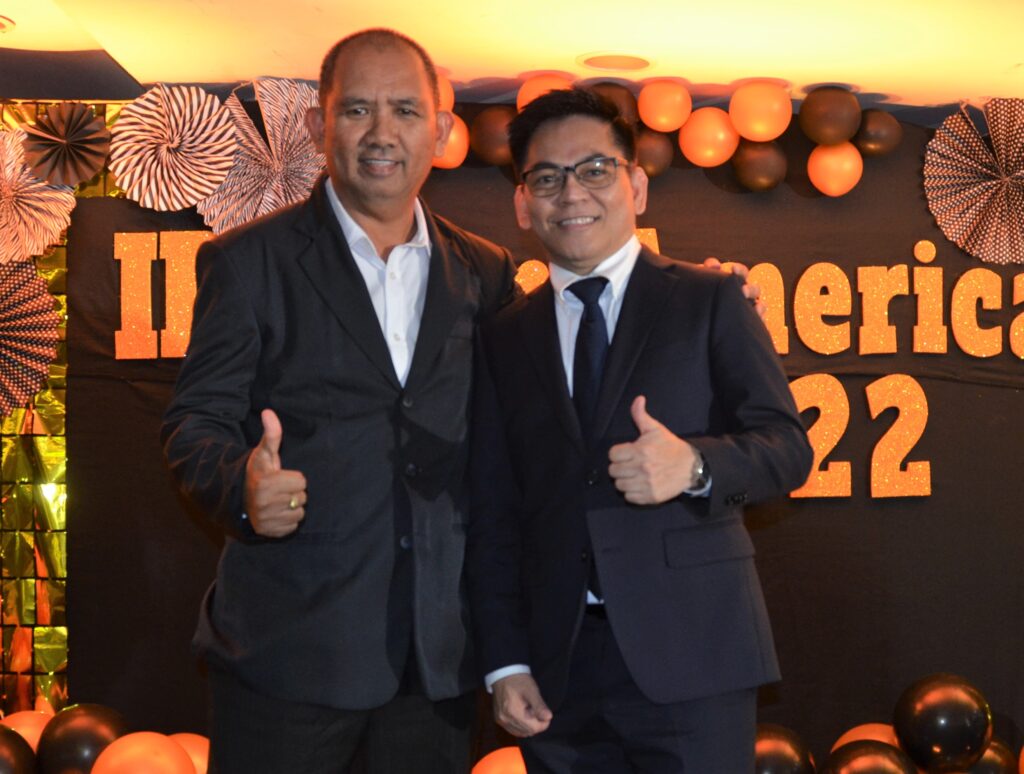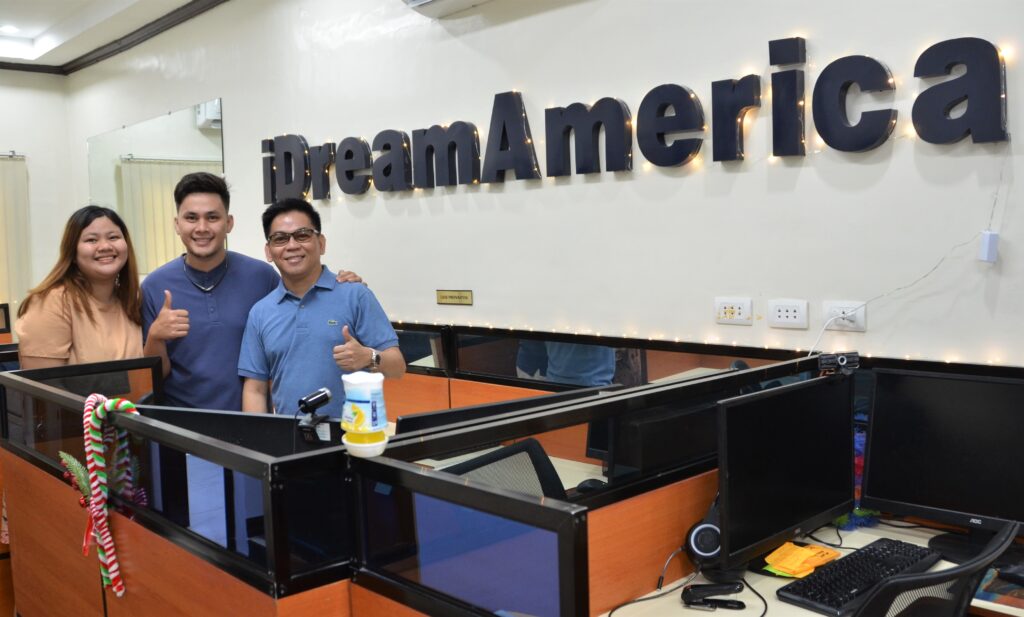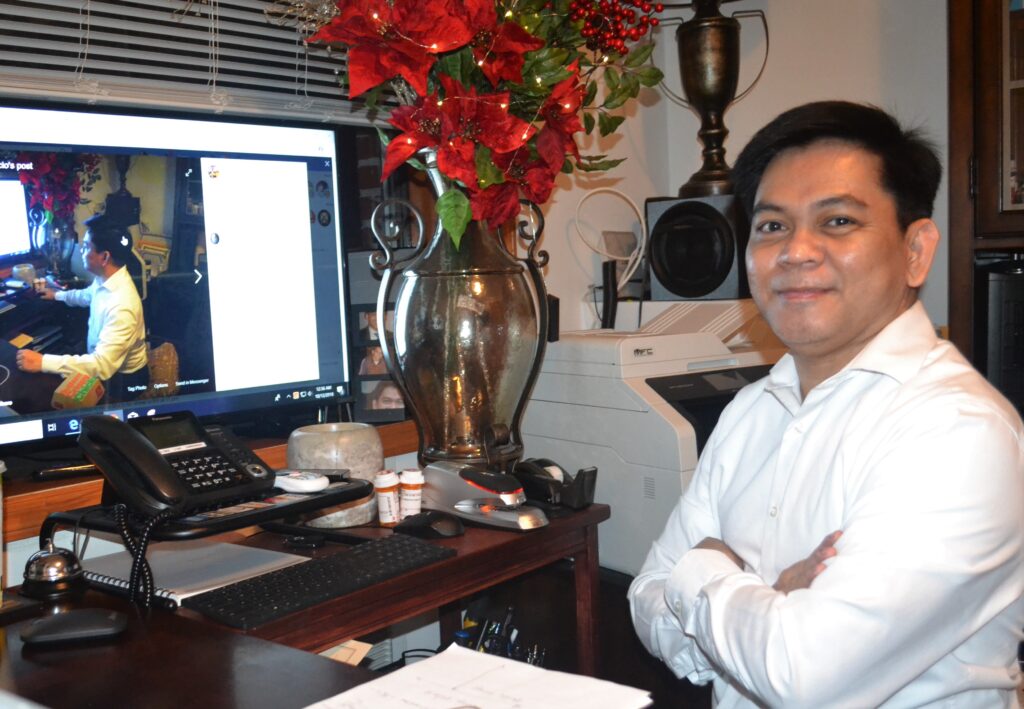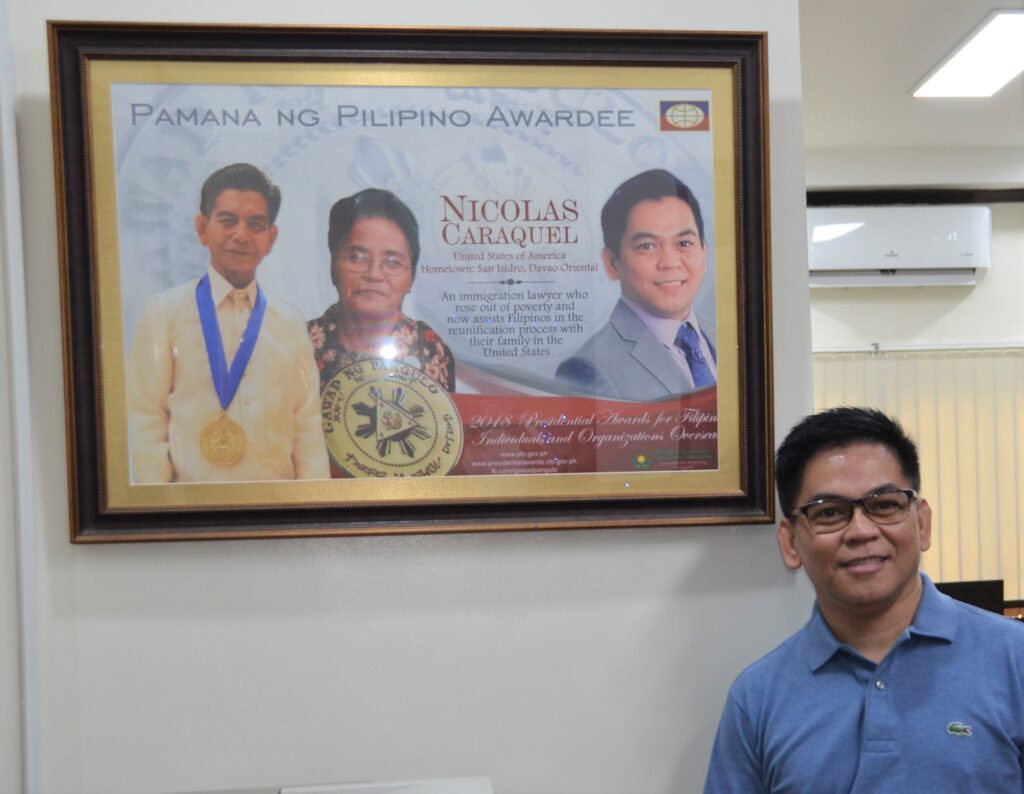Text and Photos by Henrylito D. Tacio
He is one of the honest persons you will ever meet (although this cannot be said to most lawyers). He answers questions without much ado and straightforward. He thinks, he pauses, he smiles and even laughs while we were doing the interview.
But one thing is for sure. Despite all the awards, accolades, and citations he receives through this year, he is still a down-to-earth person. He is frank as he is serious. He is cautious as he is self-effacing.
Please meet Atty. Nicolas “Nick” Caraquel, an immigration lawyer now based in New York. He has helped those who dream of living or working in the United States a reality (family and employment-based petitions), largely for Filipinos and other nationalities as well.
“US immigration issues are close to the hearts and minds of most Filipinos,” he explained on why he has chosen to be an immigration lawyer. “I went through it and I realized this is the area where I can help most Filipinos and where I can excel the most since I am one of them.”
Since he has experienced it, Atty. Caraquel can relate the struggles, the destitutions, and uncertainties of the clients. “I can provide them true legal and effective service at reasonable cost and with a heart,” he said. “It’s not all about money. I explore ways to find solutions to their problems when I believe they have a chance of approval. If I believe there is no hope for their cases, I honestly tell them that, too.”
Being an immigration lawyer in the United States is not a tedious job. In fact, he described it as an exciting job in the “sense of having to help someone involving issues that’s life changing for them.”
The negative side of the job is when his clients think that once he accepts their cases, “it is equal to approval,” he smirked.
Atty. Caraquel finds waiver cases as the most challenging to handle. “They involve fraud, criminality or unlawful presence,” he explained. “Once you accept these cases, the clients believe you also took from them the emotional, psychological and mental stress they have. You become their hope to solve their problems.”
Cases, however, differ and so each case may take months or years before it is considered close. “Waiver cases usually take more than a year while fiancée is four to five months. If a spouse, the case takes about nine months,” he said.
People who contact him for consultations, he generally doesn’t ask about some requirements. “I just want to know more about their circumstances,” he said. “Cases with prior denials, criminality, or fraud, I ask for notices of denial or request for evidence from immigration agencies.”
Although he is now an American citizen, he still considers himself a Filipino by heart. In fact, he comes home at least once a year. His time here is always divided into work (80%) and community time (20%).
It is still work as he has an office in Davao City. He usually meets his staff and gives them instructions and other matters regarding immigration. The remaining time is spent with his family in San Isidro in Davao Oriental.
His coming home usually falls during the Christmas season. The reason: he gives Christmas gifts to senior citizens in his hometown, his way of appreciating the people who witnessed him as a young boy and the place where he grew up in poverty.
Atty. Caraquel has gone a long, long way. There were seven siblings in the family and he is the sixth. His father was a barber while his mother was a seamstress. Each member had to work. “I can barely remember spending time with the first three siblings because of the age gap and the fact that they too were working students while attending school,” he recalled. “Everyone had ample share in helping our parents earn a living or support our family at that time.”
He was only six when he started to help the family in making both ends meet. Every day, at 4 o’clock in the morning, his father would wake him up. Although he still wanted to sleep, he had to get up to help his mother prepare for the barbecue vending at the bus terminal. From their house, he had to walk alone to the bus terminal to gather used barbecue sticks from the ground and wash them clean because they could not afford to buy a fresh set.
But even then, the family barely made it. When he was in third grade, his parents requested him to quit schooling. He was mad. “I didn’t talk to them for six months but would do everything they asked me to do,” he said. “I could not understand the reason why I needed to stop going to school.”
Fortunately, with sheer determination and perseverance, he was able to finish elementary. After graduating from high school, he got a government scholarship program (the only one from Davao region) that allowed him to attend a private school.
The scholarship was his ticket to enrol at the Ateneo de Davao University, where he took BS Industrial Engineering. After graduation, he worked in one of the world’s top food manufacturing companies where he was assigned in Cagayan de Oro City.
Still working, he wanted to fulfil his childhood dream: to become a lawyer. “I worked as a proud industrial engineer for 20 years and I used those skills to manage my practice,” he said. “But immigration law practice gives that sense of fulfilment – touching others’ lives, helping them achieve their American Dreams.”
He pursued law at Xavier University and passed the bar exam in 2003. Four years later, he visited the US to look for better opportunities. In 2012, he decided to work as a full-fledged lawyer in New York City.
“I am licensed in the New York State Supreme Court,” he replied when asked why he chose New York as his base. “Besides, business is here. It is easy to get referrals as there is a bigger Filipino community.”
So far, Atty. Caraquel has received more than 30 recognitions – from either engineering, legal practice and personal. “All these have one thing in common: service to others,” he pointed out.
In 2018, then President Rodrigo R. Duterte named Atty. Caraquel as one of the 11 Pamana ng Pilipino awardees. “A sought-after immigration lawyer based in New York who broke out of poverty through his determination and hard work. He assists in facilitating the family reunification process among Filipinos in the United States,” said the press statement.
The Pamana ng Pilipino Award is conferred on Filipinos overseas who, in exemplifying the talent and industry of the Filipinos, “have brought the country honor and recognition through excellence and distinction in the pursuit of their work or profession.”
On receiving the prestigious award, he said, “I was happy to know that I made my parents, my siblings, my family, my neighbors and others who know my life story proud and that it inspired them.”
Atty. Caraquel’s life is a living proof that poverty is no hindrance to become successful. In fact, it should be a source of motivation. As he himself puts it: “Do not look at poverty as a reason or excuse to stop dreaming big then work hard to make those dreams a reality. I know it is not easy; there are times that you will feel like giving up. When that time comes, seek for something or talk to someone who inspires you, when the burden gets tougher kneel down and pray. Rest if you may but don’t give up. Chase that dream and have faith!” – ###
